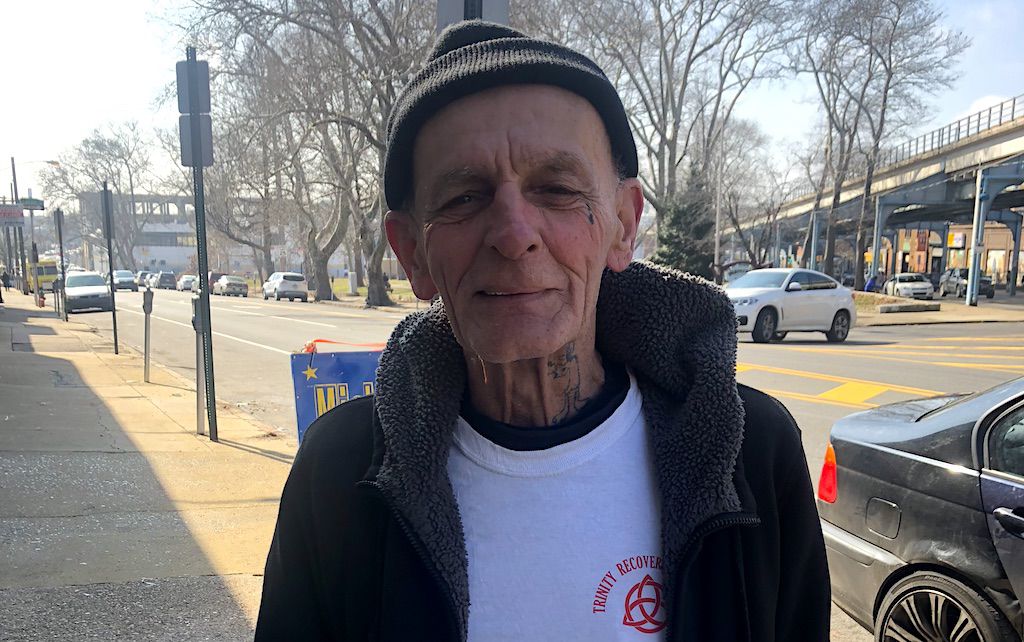Philadelphia’s new nicotine ban that began Jan. 1 in all city-affiliated rehabs and treatment programs is causing much trepidation and speculation.
Some people have questioned whether it’s too much to ask those trying to recover from substance use disorders to kick nicotine at the same time. Others say the move is a positive one, and the city has pushed ahead with the order, citing research in support of its anti-cigarette move.
Any treatment program under contract with Philadelphia’s Department of Behavioral Health and Intellectual disAbility Services’ (DBHIDS) Community Behavioral Health Division (CBH) has prohibited smoking and all forms of tobacco use with the dawning of the new year. This affects 80 inpatient addiction treatment programs in the CBH provider network, including nine detox facilities, 32 short-term rehabilitation programs, 31 long-term rehabilitation programs, and eight substance use halfway houses. People in these facilities who smoke will be offered counseling and medication, such as nicotine replacement therapy and even Wellbutrin, which has been shown to help in smoking cessation.
What may be surprising to some is that surveys indicate tobacco use kills more people than both opioid overdoses and gun violence in Philadelphia. Surveys also show that smoking among those with a substance use or alcohol problem is around 69 percent and 48 percent respectively, while smoking among Philadelphians who report not using drugs or alcohol hovers at around 22 percent.
__
“Providing substance use treatment in a smoke-free environment will not only help us to improve addiction recovery outcomes for people, it will also help us to improve their overall health outcomes.”
– David T. Jones, commissioner of Philadelphia’s Behavioral Health Department
__
“People who have a substance use disorder are smoking as much as three times the rate of the general population, and, tragically, they are dying 25 years earlier than the general population largely because of smoking-related diseases affecting the lung and heart,” said Philadelphia’s Behavioral Health Commissioner David T. Jones. “Providing substance use treatment in a smoke-free environment will not only help us to improve addiction recovery outcomes for people, it will also help us to improve their overall health outcomes – consistent with our population health approach to delivering behavioral health services in Philadelphia.”
But recovering drug users like Johnny DiPatri (a.k.a. Pipewrench) who has been in recovery from heroin use for about three years, thinks the ban is a “terrible” move.
“We have people who are trying to put down one thing, you know,” said DiPatri, a plumber by trade who lives in Kensington. They’re trying to stop doing drugs, and you take away smoking from them? It’s just a bad idea. It could irritate and agitate people who are trying to put down drugs and alcohol… I don’t understand why they would do that because it makes the whole recovery process harder.”
However, City officials say the move is based on research that shows combining smoking cessation treatment with recovery settings for alcohol and other drugs is often successful.
“The perception that cigarette use helps with remaining abstinent from alcohol and other drugs has fostered a culture of smoking among this patient population,” said Dr. Renee D. Goodwin of the Graduate School of Public Health and Health Policy, City University of New York, in the text of a study by the National Institutes on Drug Abuse that concluded that smoking increased the likelihood of drug relapse. “So far, the bulk of the evidence suggests that concurrent smoking cessation and substance use treatment is the most beneficial approach,” Goodwin wrote.
But some on the front lines remain skeptical.
Frank Aikens, director of the First Stop Recovery House in Kensington, is in charge of helping people through a 12-step recovery model. Aikens, a smoker himself, points out that cigarettes have a “hell of a withdrawal.” He feels that “telling everybody to give up the drugs and give up on nicotine – is simply too much at once.
“Everybody has a choice what they want to do in life,” Aikens said. “It’s supposed to be a free country.” He suggested that these treatment programs set up a smoking section so others wouldn’t be affected by second-hand smoke.
A client in the long-term residential treatment program at Kirkbride in West Philadelphia, getting help for his post-traumatic stress disorder, mental health issues, and a substance use disorder, one man told PW under condition of anonymity that he was trying to cut down on his cigarette use in anticipation of the ban. It wasn’t going to be easy, but he felt confident that Kirkbride would provide him the help he needed to quit.
Donald Pratt, 69, runs a shop in Kensington. After nearly 40 years of shooting heroin and using other drugs, he has been in recovery from opioid use disorder for more than two years. But Donald still smokes. Nonetheless, he said the ban was a “good thing. Cigarettes are bad for everybody, and second-hand smoke doesn’t help people either.” Plus, Pratt said he was sure that the ban would work.
“[In the end], People will adjust,” Pratt said. “People will just have to handle it.”
TWITTER: @CHARRISBOND





